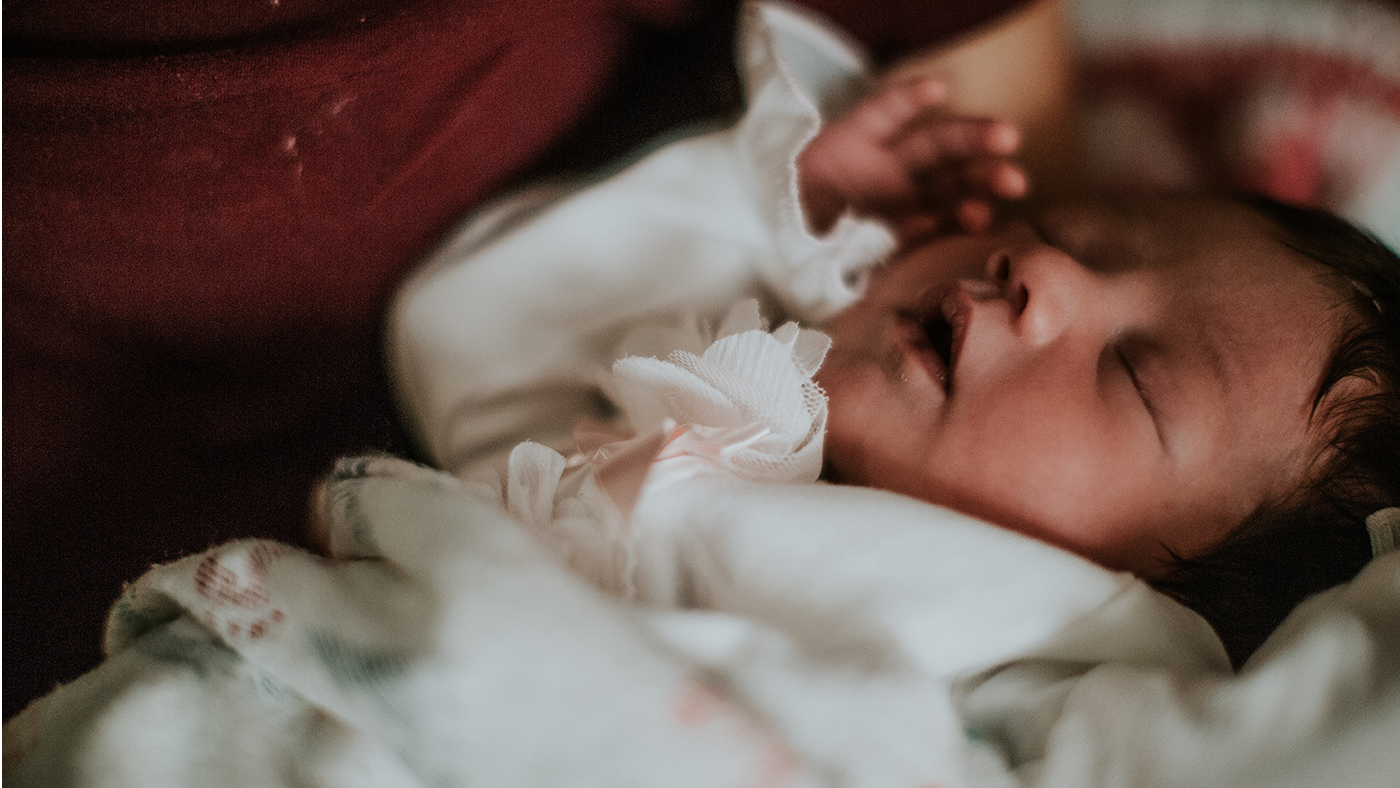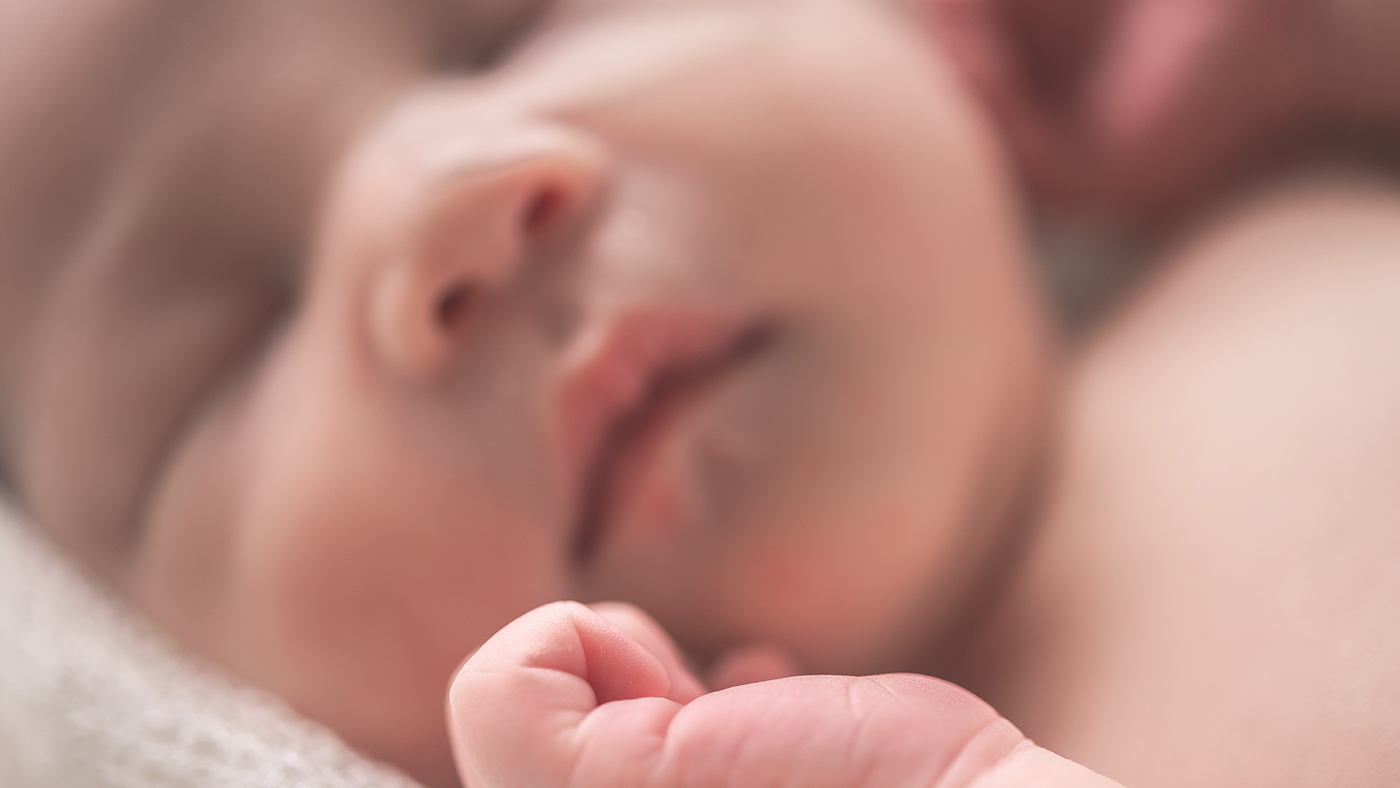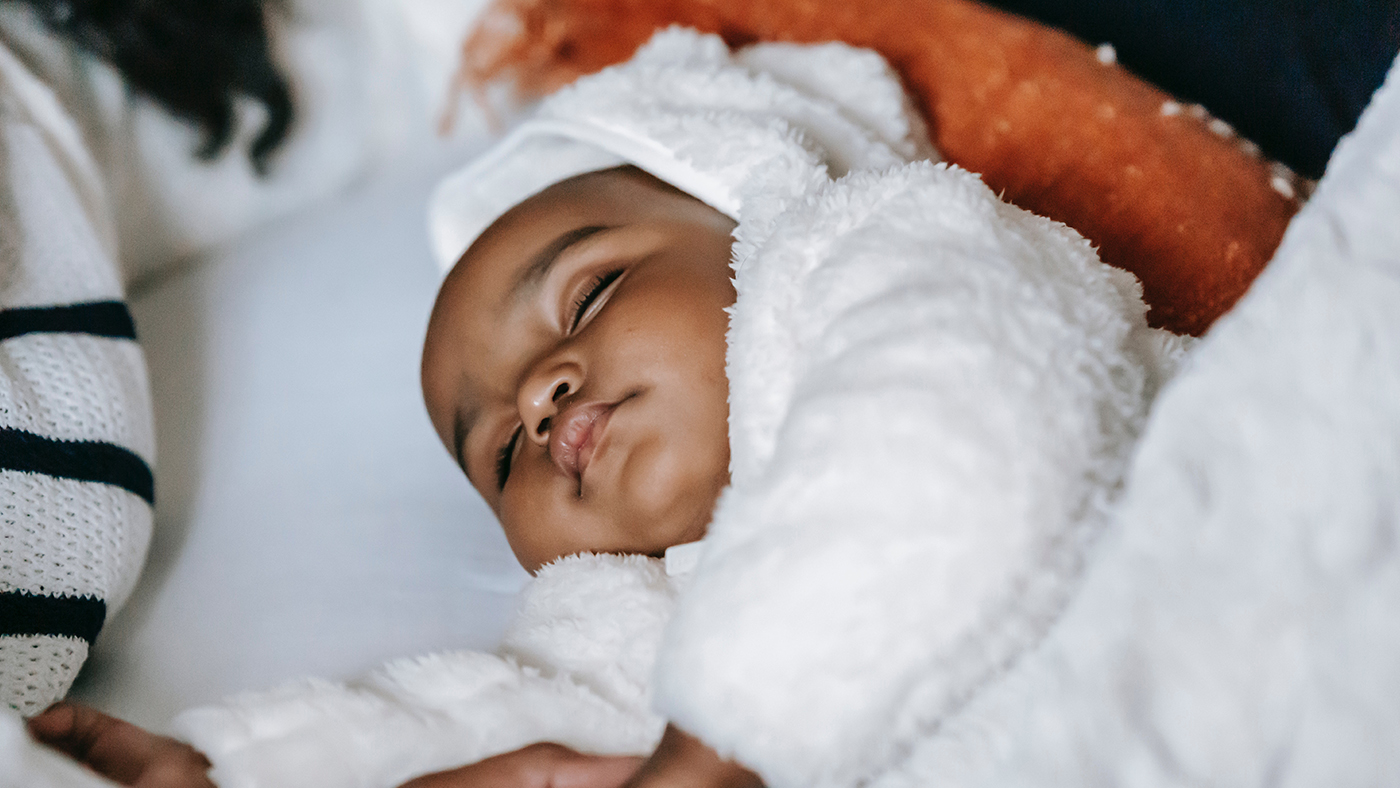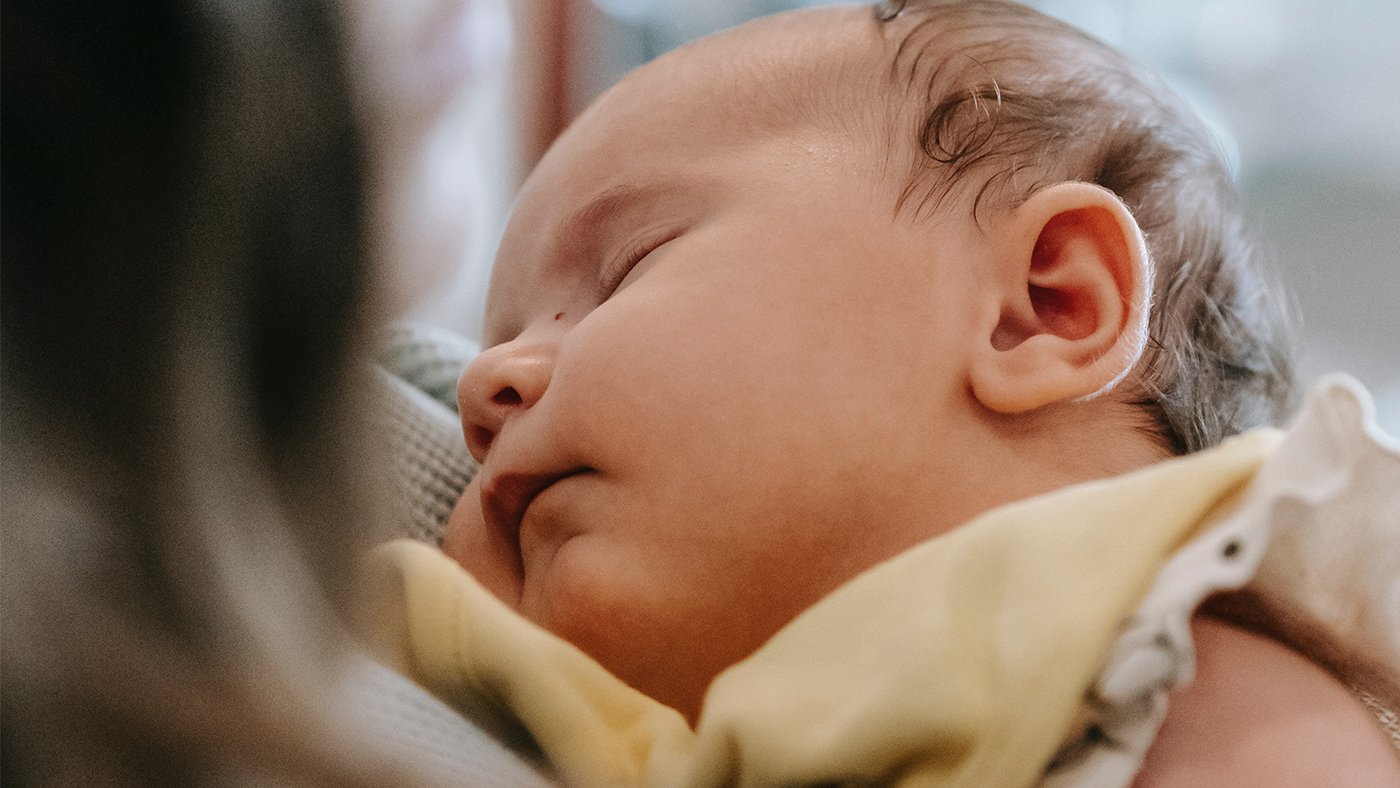Sleepy babies - learn more about your newborn's sleep
- Cognitive,
- Newborn,
- Baby,
- Sleep

Sleep takes up a lot of your baby’s time and might feature prominently in your thoughts, as well meaning friends and family offer advice about your sleep and about your baby’s sleep. In this blog, we will explore some of what is known about your newborn baby’s sleep.

How much do babies sleep?
There is a lot of information about sleep in books, on the Internet and shared amongst friends and family and this can be confusing. Perhaps one thing to remember is that your baby is an individual and, like all individuals babies have different sleep needs. It is likely that your newborn will be asleep more than they are awake with a wide range of amounts of sleep between individual babies. Your baby might sleep in fairly short bursts or sleep for longer periods. Sleep patterns might become more similar between babies during their second year, but in their first year there is considerable variation, so try to resist the temptation to compare your baby’s sleep with other babies.
The circadian rhythms that help us to differentiate between day and night are not established for a few months and your baby’s stomach is very small so they will need to wake for feeds during the night. Even if your baby is asleep more in a 24-hour period than they are awake, it might not feel like it for you as you will be woken at night, so, if you can, think about how you fit in some rest at other times during the day when you are adjusting to life with a newborn.

Sleep cycles
Before birth your baby will have spent around 90% of the time asleep, with sleep cycles that last around 40 minutes. Following birth, they might have been alert for a few hours but then continue a pattern of being asleep more than they are awake. Babies' sleep cycles are not the same as adult sleep cycles, babies fall into active sleep first, in this period of the cycle the baby’s brain is active with connections being made between parts of the brain, your baby might be more easily woken during this part of their sleep cycle. They then fall into a period of quiet sleep, during this period they will be less easily disturbed. Adults start their sleep cycle with a period of quiet sleep before moving into rapid eye movement, REM or active sleep, it is during this part of the cycle that you dream. Your baby’s sleep cycle is likely to be shorter than yours, which might explain why you feel more tired as a result of your baby’s night waking, your baby is likely to finish a sleep cycle and wake whilst you are in the part of your sleep cycle when you are sleeping deeply.

Sleep is biological
Whilst it might not feel like it when you are up with your baby at three in the morning and it feels like everyone else in the world is fast asleep, most babies do not have problems with sleep. Sleep is ingrained in our biology, babies and children need a lot of sleep as they grow and learn and they will sleep, night waking is a normal part of your baby’s sleep pattern and is likely to be for a while. All babies are different and differences between your baby’s sleep and other babies’ sleep could be linked to your baby’s need for sleep and their temperament.
Sleep safety
The Lullaby Trust provide information about safer sleeping for babies you can read more about this on their website: https://www.lullabytrust.org.uk/safer-sleep-advice/
Read more:
https://www.nhs.uk/conditions/baby/caring-for-a-newborn/helping-your-baby-to-sleep/
https://www.basisonline.org.uk/hcp-normal-sleep-development/